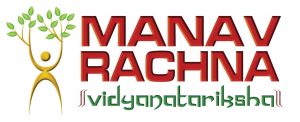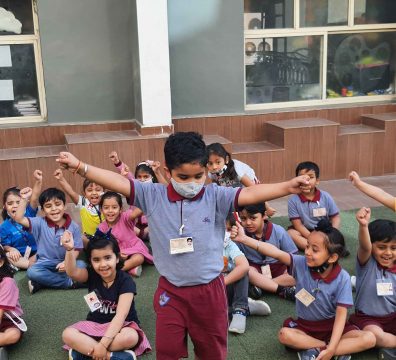
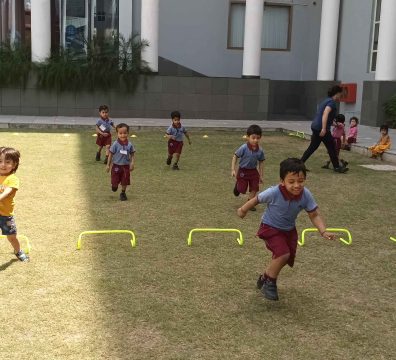
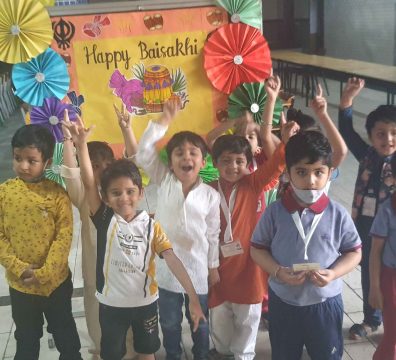
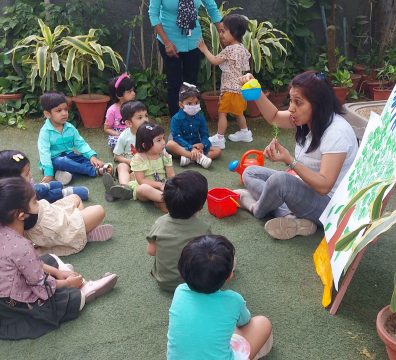
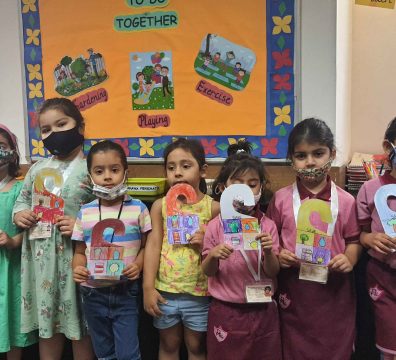
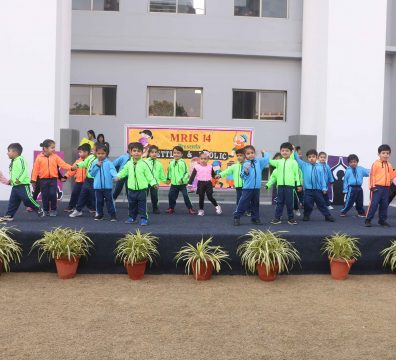
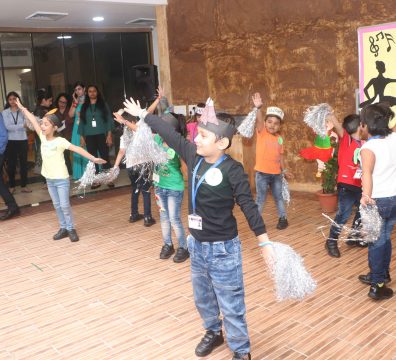
Children are explorers by nature. Hence, learning in Early Years is a result of the child’s observation and interaction with the external environment. The goal of early childhood education is to activate the child’s natural desire to learn. Our Early Years’ setting is a place where all the multiple intelligences of each child are engaged and stimulated. Experiential activity-based learning focuses on the development of creativity, supports discovery, exploration of materials, ideas and feelings.
Learning Centre Approach
The Learning Centre approach provides an opportunity to explore the 7 learning areas of numeracy, Language and Literacy (English and Hindi) blend letters to form words , performing arts, visual arts and movement in sports and well-being. Under the learning centre philosophy, the children choose their purposeful learning activity, to practice and develop skills at the Sand and Water, Tabletop, Dramatic, Play Dough, Small World, Construction or Creative Centre as laid out in the classroom. Learning centers contribute to the holistic development; celebrate the uniqueness of each child, allowing them to learn at their own pace.
Concept-Driven Curriculum
The curriculum is concept-driven and focuses on key 21st-century skills. We value and plan for the development of creativity, originality, social interaction, emotional expressiveness, scientific temper, numerical and linguistic skills in an environment which supports discovery and exploration of materials, process, ideas and feelings. Edu-trips and hands-on activities help to connect the concepts with real life and internalize the learning. Learning cannot be imparted in straight jacket compartments, hence, integrated theme-based learning is practiced which helps build deep conceptual understanding and connect the content to apply it to the real world. In early childhood programs, it focuses upon the inter-relatedness of all curricular areas in helping children acquire basic learning tools. Children are the custodians of the Earth, so through projects aligned with the United Nations Sustainable Development Goals (UNSDG), they are acquainted with sustainable practices through reflection on activities.
Learning Through Play
Learning through play is the cornerstone of early foundation years pedagogy
Learning through play is the cornerstone of early foundation years pedagogy. Play is the brain’s favourite form of learning and essential for its ability to stimulating and integrating a wide range of children’s intellectual, physical, social and creative abilities. Active engagement with children in their play extends and supports their learning. Shared, sustained conversations are also a powerful and important feature of active adult engagement. Child-directed play and learning occurs when children lead their learning through exploring, experimenting, investigating and being creative in ways that they initiate and control. Our endeavour is to help create skills and growth mindsets to enable children become independent learners for life.
